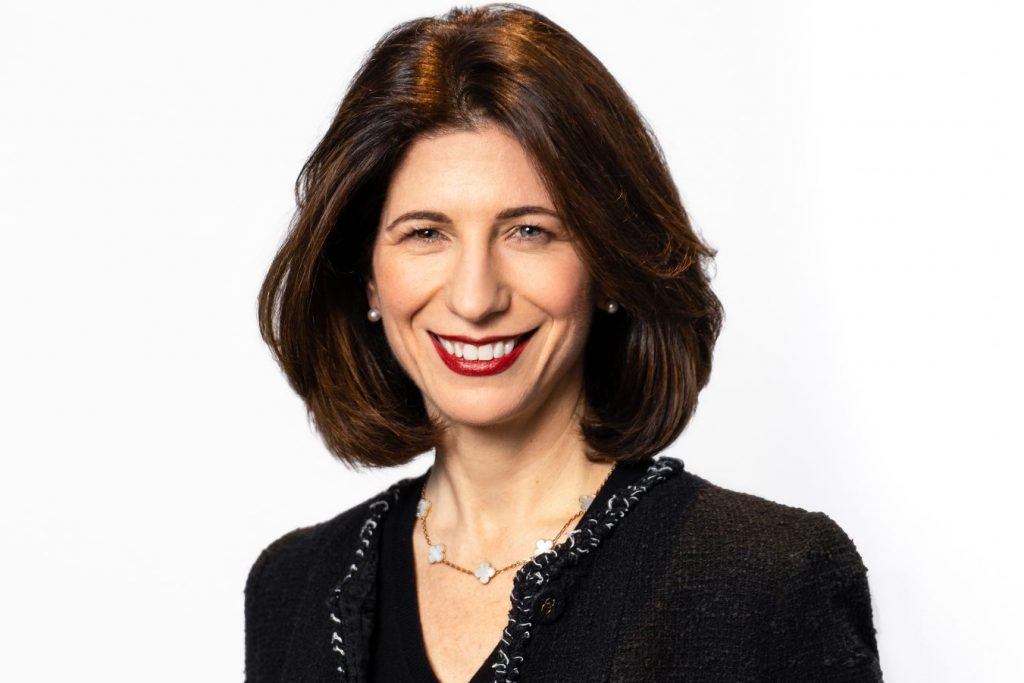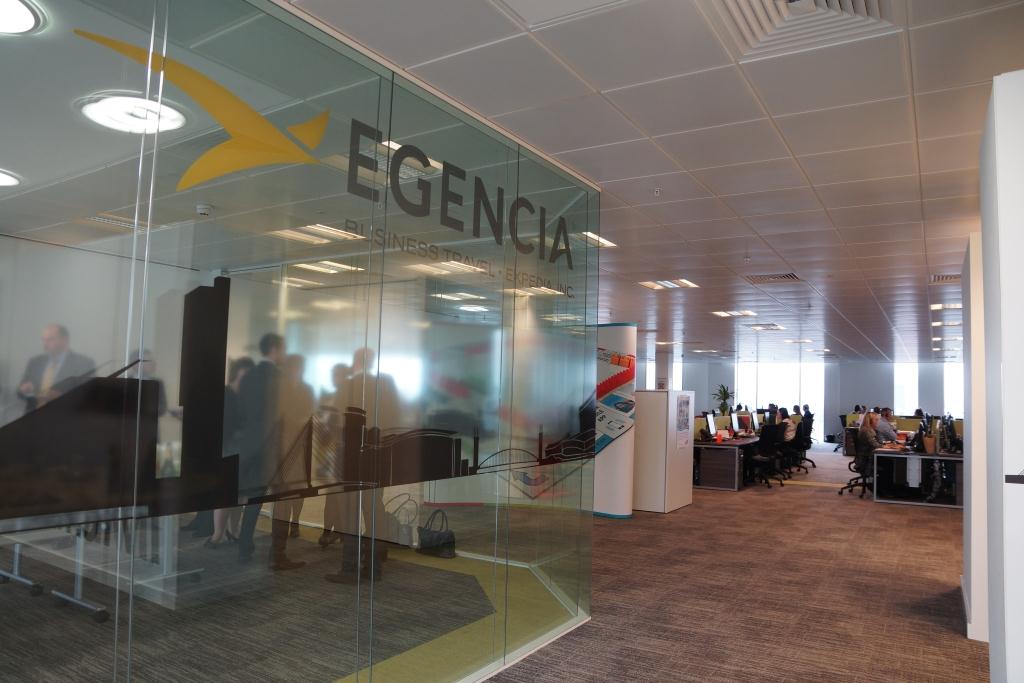Skift Take
With so much change at the top, there's a risk corporate clients are nervous because the last thing they need in a crisis is more uncertainty. There could be further operational streamlining ahead. If so, Ariane Gorin will have to balance more change with reassuring clients that Expedia Group is a steady ship.
There’s been a lot of boat rocking at Expedia Group of late.
At the end of last year, CEO Mark Okerstrom abruptly resigned while chairman Barry Diller is currently wrestling for control of the group.
Its corporate travel unit, Egencia, hasn’t been spared the drama either. In December, it was moved into a new division, Expedia Business Services, where it sits alongside Expedia Partner Solutions. Then with no warning, and in the middle of the coronavirus crisis, long-serving president Rob Greyber stepped down at the start of April.
Get the Latest on Coronavirus and the Travel Industry on Skift’s Liveblog
Ariane Gorin, who was recently promoted to lead the new Expedia Business Services arm, is now serving as president of Egencia. She talked to Skift about the organizational shakeup and what’s vexing corporate clients.
The interview has been edited for brevity and clarity.
Skift: What kind of message do you think the sudden departure of Rob Greyber sent to Egencia’s customers?
Ariane Gorin: Rob’s a great person, a great colleague, to me and to many others. And clearly he was one of the builders of the Egencia business. When we put Expedia Partner Solutions together with it at the end of last year, me and Rob spent time looking at how we make sure that for Expedia Group, we are agile and flexible, and can invest the most in the B2B business.
We were both committed to that. Then when he decided to step down, I made the decision to take Egencia directly, because we’ve got a very experienced leadership team. And especially in the current environment, it was important to make fast decisions, and for me to get closer to it.
In terms of how our customers responded, it sends a strong signal that we’ve got an experienced team, and we’re one of few companies that are going to invest in the business. Sometimes we as businesses can overestimate what the impact of our internal changes are on our clients. Actually what they care about is: are we there for them, are we serving them, and are we listening to them.
Skift: Can you share any details around why he departed so suddenly?
Gorin: I can’t talk to what Rob was planning for a while. When he made the decision to step down, then I made the decision to take Egencia directly and we’re going to continue in the direction we’re going in.
Skift: Do you see much affinity between Expedia’s leisure brands and Egencia?
Gorin: Egencia has corporate clients. At Expedia Partner Solutions the clients are partners, who have travel businesses. They’re separate businesses, but they both operate in a B2B environment. What I’ve found over the last few months is there are a bunch of capabilities that are similar across them, whether it’s B2B account management, or sales, which our leisure brands don’t necessarily have.
Skift: Do you envisage more integrations between the different Expedia brands?
Gorin: Overall, we had started with Expedia Group, under Mark’s leadership, to really think of ourselves as more of a platform. And where are there capabilities that we have in the company that we don’t want to duplicate in many places across the company. We want to have the best of certain capabilities that we can then reuse. It’s a re-commitment to that vision.
Skift: As other large online players, including most recently Booking.com, seek financial aid, what measures have you taken to protect the business?
Gorin: So far, Egencia and Expedia Group haven’t reduced work hours, or furloughed employees. We announced some action in February [when Expedia cut 3,000 jobs] but there’s been nothing since then. There’s been nothing COVID-19 related.
We’re looking at all the means to limit the impact on our employees, but also be thoughtful about the long-term health of our business, to make sure every dollar we spend is put to the best use.
(On Thursday) our chairman was on CNBC talking about how much our advertising spend is going to be with Google [Diller discussed dropping it from $5 billion to less than $1 billion a year]. As a technology company, we’re using the time to be innovative and do things that we’ve always wanted to do, but haven’t had the time before.
Skift: What are your customers asking for immediate advice on?
Gorin: Most now have gone out of the response phase, so managing the cancellations, and are now getting into the recovery phase. One area was using unused tickets. There are a lot of credits out there. Some travel managers were saying, in some cases, it’s a voucher, so how are we going to use all of these credits. Are we going to change the travel policy based on government regulation?
For our clients, it’s about self service, making things easier. One of our strengths is the amount of transactions that go through our online platform. The more travelers are using the app, and self-serving, the easier it is for the corporation to put in their traveler tracking and duty of care. That’s what we’re hearing from clients.
Skift: Vouchers seem to be a sticking point, with some corporate travel agencies criticizing those airlines that refuse to issue refunds. What’s your take on that?
Gorin: We’re a platform. If the airline has the money, and their policy has vouchers, we can’t refund a company’s money because we don’t have the money. So we’ve said when we have the voucher, we’re going to make it the easiest process possible in order for that to be reused.
A client recently told us that his chief financial officer questioned how it was possible they had all that cash sitting with airlines, and can’t Egencia do something about it? He told him: They can’t. So there’s a lot of education there. I could understand why a chief financial officer would say, wait a minute, I’ve got all this cash there. But most of our clients understand the way the model works.

Ariane Gorin is group president of Expedia Business Services, which includes Expedia Partner Solutions and Egencia
Skift: Some airlines, including Singapore Airlines, are gradually enhancing the value of their vouchers. Is this going to help?
Gorin: It’s an interesting idea. Some companies, I’m not sure about airlines, are saying they’ll make the voucher worth 110% of the booking. They’re doing interesting things around that. As an industry, there will be work to do to regain customer trust.
In some cases, the unused ticket is going to the individual’s account, not the corporate account, so how do we make sure that the corporation can keep track of that, and people don’t use it for personal reasons. There are all of these use cases and scenarios now because we’ve never had this massive wave of cancellations, we’re going to have to figure them out every time. Staying close to clients is critical.
Skift: The industry is looking at how to best reassure travelers it will be safe to travel, from Covid-19 screening at airports to airlines taking out seats. Can Egencia play a part?
Gorin: It’s something that one company alone can’t do, and the industry bodies need to figure this out together. It really is about rebuilding trust and safety. We’re involved with the World Travel and Tourism Council, and we need to all figure out the standards that need to be put in place to create that trust. It’s not just for the travel industry, it’s for society as a whole.
The Daily Newsletter
Our daily coverage of the global travel industry. Written by editors and analysts from across Skift’s brands.
Have a confidential tip for Skift? Get in touch
Tags: coronavirus, egencia, expedia
Photo credit: Egencia's Manchester office. Annie Egencia / Wikimedia Commons
